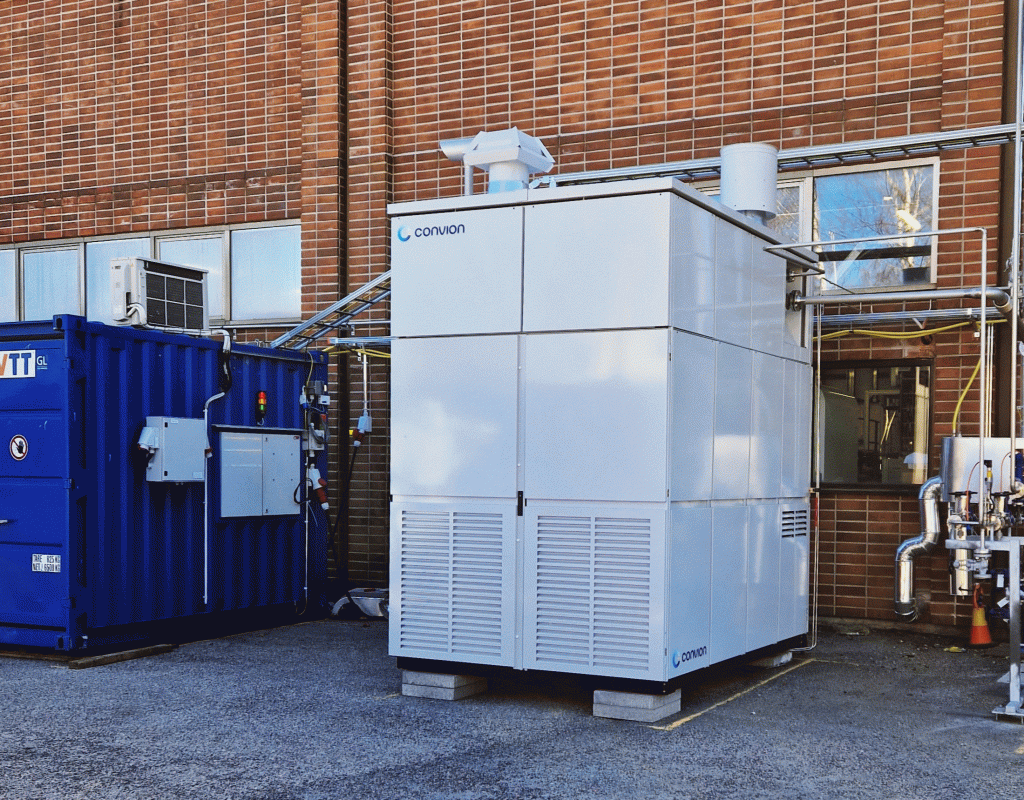
Convion has successfully delivered and started operating the first high temperature electrolysis system at VTT’s Bioruukki test site. The electrolyser undergoes an internal test program to validate the system’s performance and operation. Delivery of the unit is connected to a VTT coordinated project E-Fuel, where green hydrogen produced by Convion’s SOEC electrolyser is used to produce electrofuels for transportation applications.
The delivery and commissioning of the steam electrolyser marks a major milestone for Convion in its development journey targeting at producing low-cost renewable hydrogen for industry. Rapid development schedule and successful commissioning are testament to the company’s strong and comprehensive background in Solid Oxide Cell systems’ technology, commitment to innovation, and striving toward sustainability. Compared to conventional electrolysis technologies, Solid oxide electrolysis technology makes possible hydrogen production at 25-30% lower electricity consumption, when waste heat is used for steam generation. Superior electrical efficiency and thermal integration make it well suited for industrial on-site hydrogen production.
Delivery of the first SOEC system based on Convion’s C250e platform is a key step in the company’s pursuit of commercializing large SOEC electrolysers to meet the growing demand for sustainable solutions for decarbonising industries. Convion’s high temperature SOEC electrolysis system is a central part of the integrated concept developed and constructed in the E-Fuel research project. The demo plant produces drop-in paraffinic transportation fuels through Fischer-Tropsch process using green hydrogen and sequestered CO2. The project brings together a group of companies representing the full value chain from hydrogen produced by renewable electricity and captured CO2 to renewable electrofuels and to fuel off-takers in transportation sector. The concept has a potential to improve total efficiency of the e-fuel production significantly, improving economics of a carbon neutral solution to otherwise hard-to-abate sectors such as aviation and deep sea shipping.
